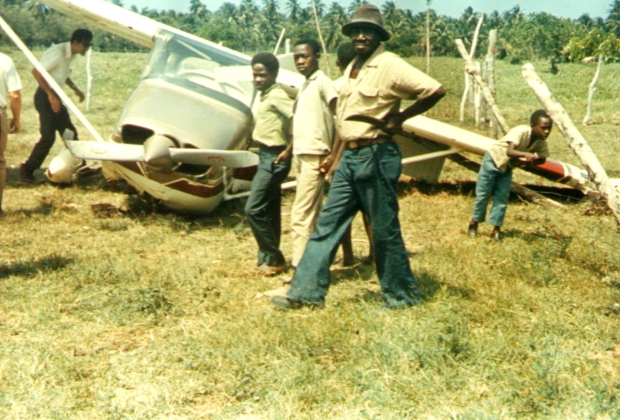
Jamaica 1970


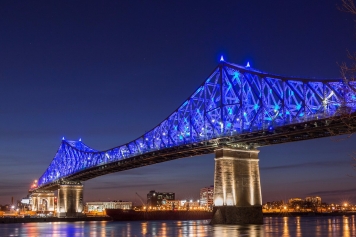 I grew up to tales of Great Depression challenges and deprivation, and have vague memories of troop trains bringing soldiers home from World War Two. In literature I have read stories and memoirs of expatriate artists whose halcyon days of creativity and giddy nights of ribaldry were lived in 1920s Paris: Canadians, Americans, Irish, English. Big names. A second flight of Canadian writers descended on Paris after World War Two, and especially during the 1950s. And the city of my youth – Montreal – spawned many of them.
I grew up to tales of Great Depression challenges and deprivation, and have vague memories of troop trains bringing soldiers home from World War Two. In literature I have read stories and memoirs of expatriate artists whose halcyon days of creativity and giddy nights of ribaldry were lived in 1920s Paris: Canadians, Americans, Irish, English. Big names. A second flight of Canadian writers descended on Paris after World War Two, and especially during the 1950s. And the city of my youth – Montreal – spawned many of them.
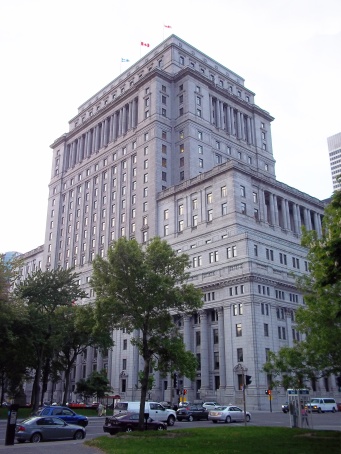
A while back, I decided to read some of these iconic writers whom I let slip through the cracks for too long, having concentrated on American and British writers with only a sprinkling of Canadians like Hugh McLennan, Marie-Claire Blais, Hal Horwood, Pierre Berton, and a couple of others. And so far I have thoroughly enjoyed reminiscences with the likes of Mordecai Richler, William Weintraub, Mavis Gallant, Brian Moore (okay, he started out Irish,) and John Glassco.
Whether or not the stories I have been reading dealt specifically with Montreal – some did and others did not – the flavour of the City as they knew it comes through as delectably as the aroma of Montreal smoked meat, but there is also universality. I was there too, but too young at the time to understand all that was happening around me.
Anybody interested in mid-20th century great Canadian literature – whether or not they have a Montreal bent – or just longing for a glimpse of their own youth if they grew up in that era, will be well rewarded if they allow these writers to share their stories even if it is second time around. I’ve enjoyed a rewarding few months with them.
I had a conversation with a young American soldier on an airplane forty years ago at a time when his countrymen were coming home from Vietnam in body bags.
Out of a flight of a little more than three hours grew a long journey of reflection, introspection and confusion.
I have thumbed through some old boxes of notes I began to assemble one time, thinking I might write a memoir one day. That never happened. My encounter with this young man is recorded among those notes. Here is what I wrote a short time after meeting him:
There is a void in my world, an appalling dimensionless chasm created through the absence of a man whose last name I do not even know. I met the man on a flight from New Orleans to New York in the summer of 1971. I’ll call him Harvey. He wore the uniform of the United States Army. We were airborne half an hour when we entered the conversation, and by the time we began our descent into New York I felt a strange presentiment, a trace of reserved and foreboding concern for him.
Harvey had been drafted and the war in Vietnam was hot. Having just completed training, he was flying home to say his farewells before shipping out to Vietnam. Vietnam was very far away from me. I was returning from an extended job assignment in the Caribbean where I had just spent three and a half years. The war was news, of course, but Canada was not a part of the war. While American boys were fighting in the jungles of Southeast Asia, I had been working on a unique project that involved extensive travel throughout the mountainous interior and around the sandy border that trimmed most of the perimeter of an enticing tropic island.
It was there I first hovered with mask and snorkel and stared in awe at teeming life on the reefs, sailed the blue-green Caribbean, hooked my first bonito, drove my first car rallies, learned to fly an airplane, took the controls of a helicopter and climbed the island’s highest peak. From this self-indulgent, sun-drenched extended interlude, Vietnam was very far away indeed. To Harvey, it was ominously close at hand. He was about to embark on a journey of fear. He was scared.
Harvey was a high school teacher and had been married only a short while when he was called up. His wife was scared, too, and he worried about her. The man was no coward. He was brave enough to admit his fear. There was popular protest against the war at the time and though he said nothing unpatriotic, I sensed he might have shared the protest view that this was not a cause one should have to risk one’s life for. I had always had a peripheral interest in all things military and I could not help but ask him about his PFC (Private First Class) rank when clearly he could have been an officer candidate based on this education alone.
He told me bluntly and without apology that although he was prepared to do what he saw as his duty, he wanted the least possible direct responsibility for the war. He would take orders, execute them, and hope he would not be called upon for more. He made no effort to camouflage his anxiety or the dread with which he anticipated his fate on the far side of the planet. For me this flight instigated internal weighing, arguing, balancing and trying to figure out the logic of the Vietnam wat in particular and war in general. I began to focus on something that hitherto had just been of academic interest, far from my everyday experience.
We talked, he more than I, and through it all I was conscious of the coiled fear that he bravely and naturally allowed into his encounter with me, a complete stranger. I do not recall all of the details of our conversation, only his much repeated references to his wife and teaching career.
It was not likely, of course, that our paths would ever cross again. I came to know a fair bit about his feelings and concerns in that short time. I wanted to know, as I was about to begin a new phase of my life back in Montreal after a considerable absence, that he was safe and how he was taking his life as a combat soldier. I asked him to take time when he arrived in Vietnam to drop me a line. I gave him my address. He said he would give me his APO address with the first letter he sent me. Foolishly, I never asked him for his home address and I had only his first name. I believe he sincerely meant to send me that letter. We parted company shortly after we landed at Kennedy. I never heard from Harvey again.
That short trip had an impact on me that lasted these decades. I sometimes think about Harvey. I wonder whether he is vegetating in a hospital somewhere. Or whether he became a young widow’s tortured memory, his name one of the thousands etched into the face of the massive granite monument the Americans eventually built to the memory of that particular war’s fallen fighters. I wondered sometimes whether he was somewhere in the United States standing before a high school class, driving home to his wife and maybe even to youngsters of his own after a day’s work. Of course, if that has ever been the case, he would be retired now.
There are versions of my little story in people’s hearts and minds all around the world. Stories of people meeting people in time of war, going their separate ways and never meeting again. Stories just as there were during WWII, back beyond that to WWI and all the wars before that. The underlying current does not seem to change. Death, suffering and heartache brought on by egregious men set on ruling over masses of other people, bending others’ minds to suit their own way of thinking and subjecting vast areas of the planet to their will. Elders to not learn harmony and youth continue to pay with their lives for this blind ignorance. If Harvey did survive Vietnam, I cannot imagine his state of mind if he has children or grandchildren in uniform today in a foreign country.
For a long time I mulled these thoughts over in my mind. Then one day Canadian men and women started coming home from Afghanistan in body bags and I found myself on that airplane again after those four decades, in conversation with a young man who was frightfully aware that he was might end up in one of those body bags.
After all this time I still do not understand why young men and women of modern civilized countries must be killed at war. That flight did not end in New York. Harvey has not gone away. My journey of reflection, introspection and confusion has not ended. I doubt that it ever will.
First published in Lester’s army.
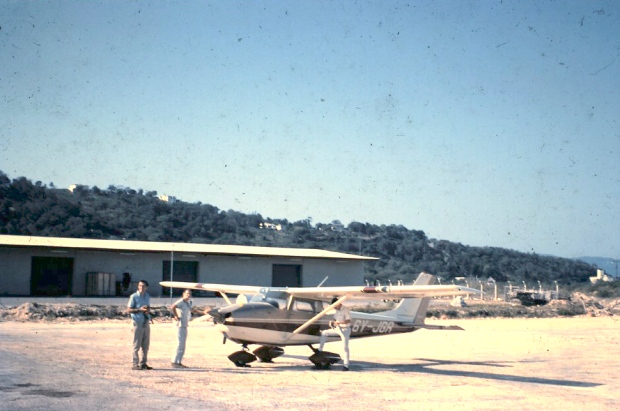
When I used to fly – in Jamaica
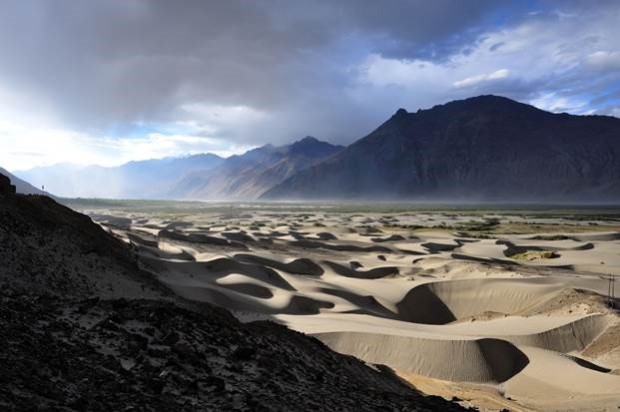
Sand dunes at 10,000 feet, Himalayas, Nubra Valley.
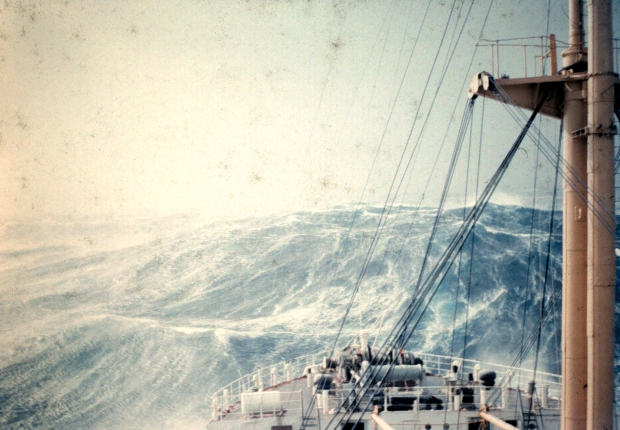
Wild Atlantic storm
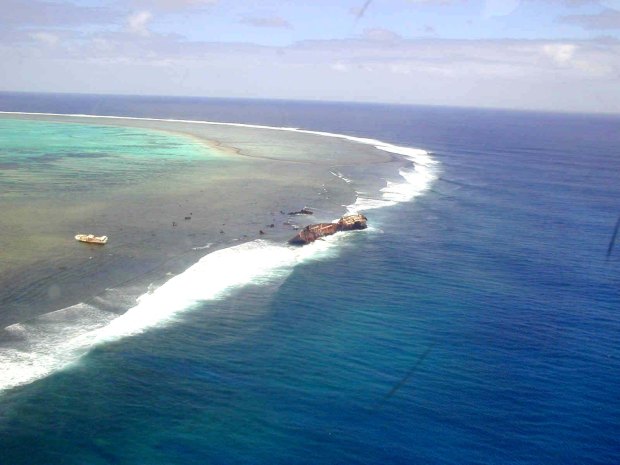
Extract from Tales of the m/v Eastern Skies.
Another freighter, the Runic, reputedly the largest refrigerator ship in the world at the time, smashed up on Middleton Reef north of Lord Howe Island. She had been sailing in foul weather and plowed onto the reef at a fair speed. We might be called upon to rescue her crew.